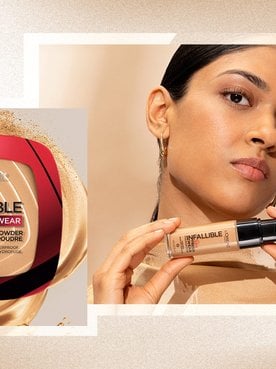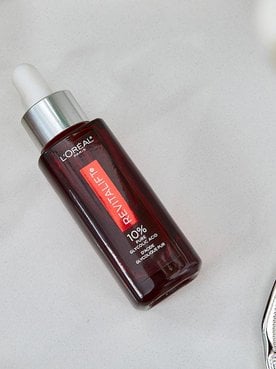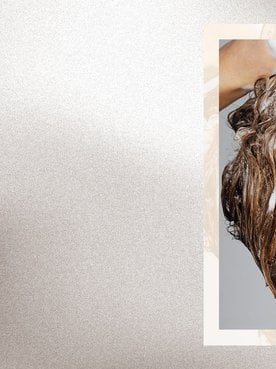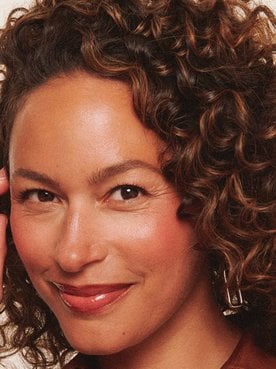Calling all people who prefer night showers to morning showers: this one’s for you. If you shower at night, chances are you hit the hay with wet hair more often than not. Ever wonder if there are repercussions to sleeping with wet hair — or if there is a proper way to sleep on hair, like braiding wet hair before bed? If this question and more like these have ever crossed your mind, we’re here to share some answers. Keep scrolling to learn about what can happen when you sleeping with wet hair for each hair type, plus some easy hairstyles you can sleep in to preserve your wet strands.
Featured Products
Is Sleeping With Wet Hair Bad?
Sleeping with wet hair can have a greater effect on different hair types. Check out the precautions for sleeping with wet hair for straight, curly, frizzy and wavy hair.
How to Sleep With Wet Curly Hair
Sleeping with wet curly hair is not a good idea for a few different reasons. First, hair is most vulnerable when it’s wet which means it’s more prone to breakage. Pair that with a night of tossing and turning and you can really damage your hair, especially when you have curls. Depending on your hair porosity, if your hair retains water, going to sleep when it’s wet can stretch your curls, leading to brittle ends and dryness.
Wrapping your wet curls in a towel or bonnet is also a bad idea because your hair won’t be fully dry when you wake up, which can negatively affect your curl pattern and towels can cause friction that can pull and tug at your hair.
How to Sleep With Wet Straight Hair
If you have naturally straight hair, going to bed when it’s wet isn’t the best idea because it can lead to tangles, breakage, moisture loss and increased frizz. If you shower before bed, allot some time for your hair to air dry or blow dry your hair to about 70 percent dry before you check out for the night. Removing most of the moisture from your hair will help to make it less vulnerable while you sleep.
How to Sleep With Wet Frizzy Hair
If you’re prone to frizz, sleeping on wet hair is only going to exacerbate that. The only time it’s advisable is when you sleep in a heatless style that can accommodate wet hair, like braids. If you’re planning on wearing braids to sleep, prime your frizzy hair with a leave-in conditioner or treatment, like the L’Oréal Paris EverPure Sulfate-Free Simply Clean Midnight Color Care Serum, to keep your hair smooth and enhance shine.
How to Sleep With Wet Wavy Hair
Wavy hair, much like curly hair, is not something you want to sleep on when it’s wet unless your hair is in a protective hairstyle like braids. Wrapping your wet waves in a scarf or a bonnet isn’t an effective workaround because your hair won’t be able to properly dry and it will affect your style.
Can Sleeping With Wet Hair Make You Sick?
You may be familiar with your mother or grandmother telling you not to go outside with wet hair for fear of catching a cold, but what about sleeping with wet hair? According to a study from the National Center for Biotechnology Information (NCBI), the belief that the common cold can be caused by wet hair is, in fact, nothing but a myth. So in short, sleeping with wet hair won’t make you sick.
Does Sleeping With Wet Hair Cause Headaches?
Another common belief is that sleeping with wet hair can result in headaches. The NCBI reveals that there is some research that suggests wet hair in cold weather can be a shaping factor for sinus headaches. That being said, more research needs to be done. When in doubt, though, it’s best to dry your hair before heading to sleep.
Can Sleeping With Wet Hair Damage Your Strands?
If you need a good reason not to sleep with hair, let it be the fact that it has the potential to be super damaging for your strands. As we mentioned, your hair is in its most fragile state when wet. The American Academy of Dermatology (AAD) states that wet hair should be handled as little as possible because wet hair breaks more easily than dry hair. This means some simple tossing and turning or sleeping on a rough pillowcase can cause breakage and split ends to occur.
Due to the fragile state of wet hair, the AAD recommends allowing your hair time to partially air dry before styling or combing it. This suggestion should also be applied to sleeping on your wet strands. If you don’t want to give up your nightly showers, consider leaving a few hours between your shower and bedtime to give your hair time to dry, or try using a blow dryer (with a heat protectant, of course) to rough dry your hair and speed up the process.
If you need a good heat protectant for wet hair, try the L’Oréal Paris EverPure Sulfate-Free Weightless Blow Dry Primer, Heat Protectant, which helps to smooth hair and prolong your style.
Does Sleeping On Wet Hair Lead to Knots and Tangles?
A few knots may not be as concerning as getting sick or causing damage to your hair, but it is a concern when it comes to sleeping on wet hair and it has some serious implications. If you tend to move a lot while sleeping, knotty hair can certainly be a result and this can lead to tugging and friction that can cause hair breakage. Brushing those harsh knots from your hair every morning can also lead to breakage because a hairbrush pulls on your strands.
3 Wet Hairstyles You Can Sleep In
If sleeping on wet hair is a habit you can’t break, do it the right way and style your hair in a loose updo that can keep it protected while you sleep. Check out three wet hairstyles you can sleep in to protect your hair and make sure it looks good upon waking.
1. Braids
If you need to sleep on wet hair, at least do so with a few braids. Braiding wet hair can help to keep your strands protected and when you wake up, you’ll have gorgeous loose waves. Allow your hair to slightly dry before you start brushing and braiding it. It’s best to work with damp hair for this wet hairstyling option so the more time your hair has to dry, the better.
When your hair is partially dried, spritz the L’Oréal Paris EverPure Sulfate-Free 21-in-1 Color Caring Spray, Leave In throughout your strands for benefits like reduced frizz, enhanced shine, no tangles and more. Then braid your hair as you wish — we recommend a couple of French or Dutch braids for tighter waves and a single braid for looser ones. When you wake up, undo your braids to reveal your air-dried strands and easy heatless style.
2. Space Buns
If you prefer big curls to loose waves, catch up on beauty sleep in some space buns. Allow your hair to partially dry so it’s damp and pull your hair into space buns — forming a high bun on both sides of your head.
Simply split your hair in two and twist each section around itself, forming a bun. Secure your buns into place with soft scrunchies and in the morning, let your hair down and show off those waves. If your hair gets frizzy while you sleep, apply some of the L’Oréal Paris Elvive Dream Lengths Frizz Killer Serum Leave-In in the morning to smooth frizz and enhance shine.
3. Hair Scarf or Bonnet
A hair scarf or bonnet is only an option for wet hair when it’s damp, meaning your hair should be at least 70 percent dry (the more dry your hair is, the better). The reason is that if you wrap wet hair, it’s vulnerable, it’s not going to fully dry and it’s going to affect your natural texture.
If your hair is damp, then you can wrap your strands in a silk or satin hair scarf or bonnet before going to bed. This will prevent any friction between your strands and pillowcase and will eliminate any added frizz in the process. In the morning, you can also use the scarf to style your strands.
Next: 20 of the Best Protective Hairstyles for Natural Hair
Photo: iStock







